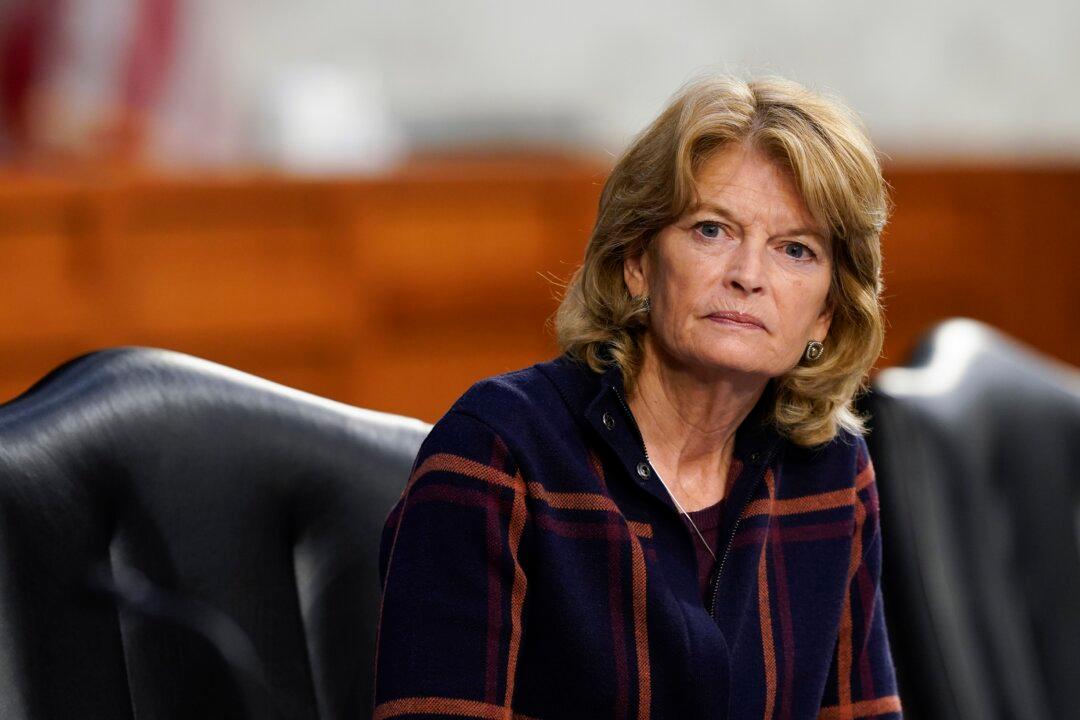Incumbent Republican Sen. Lisa Murkowski was declared the winner over Republican challenger Kelly Tshibaka as Alaska’s lengthy and complex ranked-choice election process reached an unofficial conclusion on Nov. 23.
Murkowski, one of seven Senate Republicans who voted to convict former President Donald Trump after he was impeached, overcame a post-Election Day deficit to defeat Tshibaka, who was endorsed by the former president, according to results announced by the Alaska Division of Elections.





